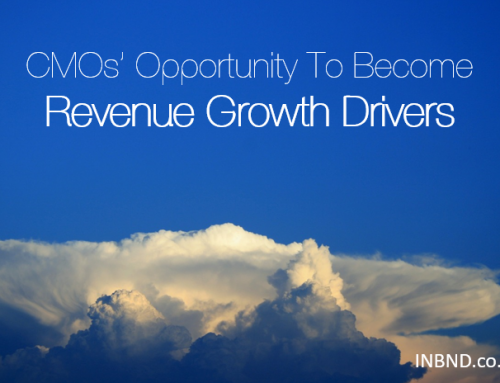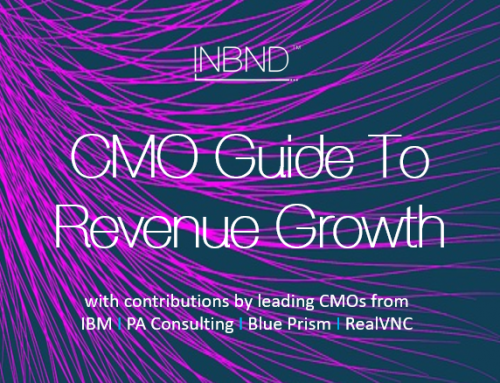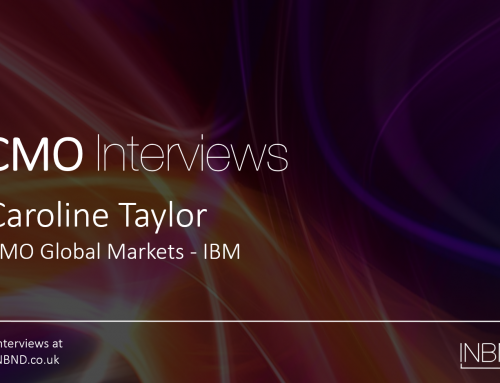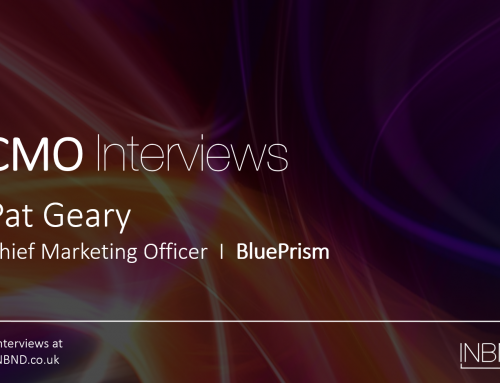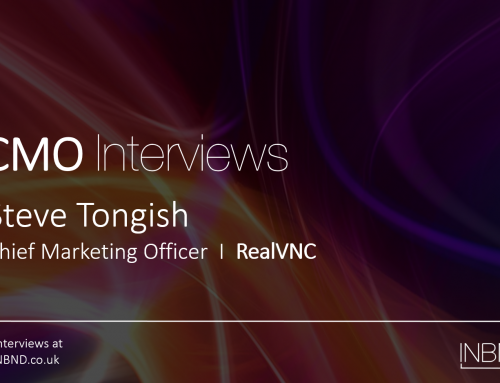Over a period of six months, INBND’s Managing Director Lev Cribb interviewed 9 CEOs, Founders, and CMOs. These CxOs have started companies, created winning marketing strategies, and led companies to impressive growth. Combined, and individually, these leaders hold tremendous experience, insight and knowledge that anyone can learn from. In this post Cribb shares his hightlights – 10 Insights from 9 CxOs.
The CxOs come from a variety of backgrounds and company sizes ranging from global Enterprises such as IBM to Start-up SMBs. Irrespective of their backgrounds, each of these leaders has an inspiring story to tell. And regardless of their age, the vision and insight they possess help others to grow in their own pursuit of growth and success.
The first thing I learned from interviewing these 9 CxOs was that their success was based partly on innate factors and partly on acquired skills and experience. Some of it was inspired by other people, while other aspects were inspired by books they had read and experiences they had had along the way. Without stepping out in faith to pursue their own passions, none of these CxOs would be where they are today. In other words, success is not exclusive and it is never too late to achieve it.
Here are 9 other things I learned from interviewing these 9 CxOs:
Use metrics to rise above opinion
Caroline Taylor, CMO Global Markets at IBM
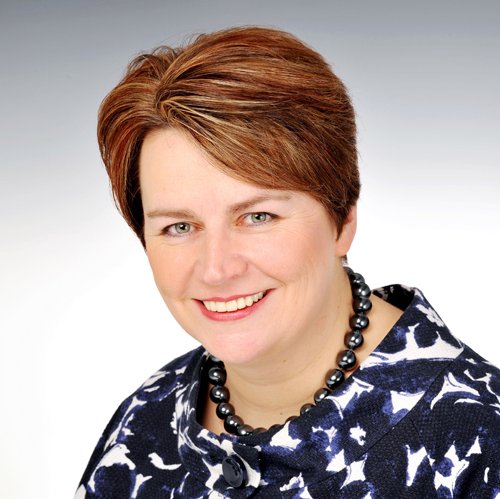
When I interviewed Caroline Taylor from IBM, the conversation quickly turned towards metric-driven marketing and the scientific approach to achieving results. With 30 years’ experience in marketing and 20 years’ working for IBM, Caroline Taylor explained how the company’s marketing function relies on decisions made based on data and the insight it provides.
When I asked her about how CMOs can influence and drive revenue growth, Taylor said “Data. It’s how we build our investment cases, it’s how we prove the value of every £$€ spent. When we’re data driven in how we plan, how we execute and how we measure success, we establish a credibility that goes way beyond the persuasive arguments of a seasoned marketer.”
If we look back at how marketing traditionally made its case, it would include pitching ideas based on experience. However, today we see a different approach. While experience is still very important, much of the guesswork (i.e. the need to “pitch an idea”) can be replaced by insight. When we do this, we rise above opinion and use metrics to justify the approach and investment.
CMOs need to become more commercial
Pat Geary, CMO at Blue Prism

It became clear very early in the interview with Pat Geary that being a commercially savvy marketer holds the key to success when it comes to driving revenue. There was no question in Geary’s mind that a marketer can only succeed, if they embed themselves in the commercial cycle and understand its aspects.
Talking about driving growth, Geary had this advice “You have to be involved in the revenue mechanism and understand how that works – including profitability. Sit down with the CFO, learn and understand how those aspects work.” This advice reads more like an instruction to an accountant or finance employee, but that is exactly Geary’s point. It is no longer enough to only focus on campaign-related brand-awareness aspects of marketing.
What we can all learn from my interview with Geary is that modern marketing requires executives to think differently. CMOs and senior marketers cannot afford to not be commercially savvy. This extends into many areas of the business, starting with the financial aspects of profitability and revenue. Geary put it this way: “A CMO has to be like a spider sitting at the middle of the company web with connections to all parts of the business”.
Turn misfortune into a winning strategy
Stephen Tucker, CEO of Bunting

In one of the most inspiring interviews I have conducted in a long time, Stephen Tucker explained how he turned commercial misfortune into success. In fact, without his misfortune he would be running a company with an innovative and successful product. Working on setting up one of his first companies, he was hit by click fraud which nearly cost him his business.
In response, he developed a piece of code to detect and analyse the click fraud activity. Eventually, he further developed this piece of code into a completely new application for website personalisation. While it no longer has anything to do with detecting click fraud, Tucker’s new product quickly proved to be commercially viable and successful.
It would have been easy for Tucker to have given up when faced with this type of adversity. As a company founder, I can relate to set backs and having to pivot away from plans and towards alternative solutions. In speaking to Stephen Tucker, I learned that this can lead to extraordinary success, instead of just being a fire-fighting exercise. And on top of it all, Tucker now has an inspirational story to tell.
Focus on what matters to you
Martyn Hodgson, CEO of Swirral
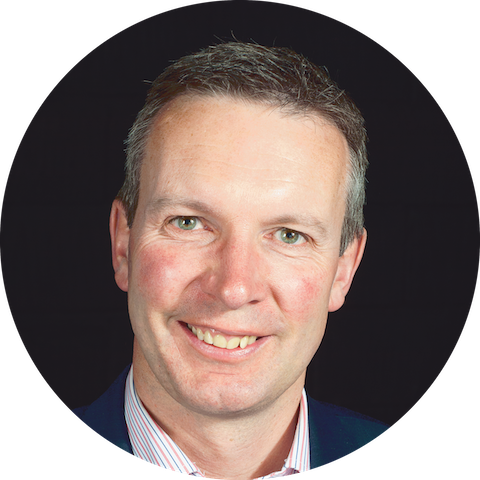
During my interview with Martyn Hodgson we covered a lot of ground. From an accounting background, Martyn had developed across various disciplines during his career. This journey took him from accounting into finance, while picking up a host of marketing and technical skills along the way.
As part of that development Hodgson worked out which aspects of business he enjoyed most and created a business around those. He distinguished between areas he enjoyed as well as being good at, versus areas he was good at but didn’t enjoy as much. Hodgson told me: “I setup Swirral on the basis that I had to outsource the services that I can’t (or don’t want to) offer myself. It was a big step, especially if you’re not busy and you’d prefer to have the money yourself. But it allowed me to grow.“
The insight Hodgson provided here was that you can focus on what matters most to you professionally and create a business around it. Too often we will settle for things we don’t enjoy, so that we can do some of what we enjoy most. Hodgson was not willing to compromise and found another way. Anyone can learn from that approach and create a happier working life for themselves.
Use automation and technology to help marketing perform
Steve Tongish, CMO at RealVNC
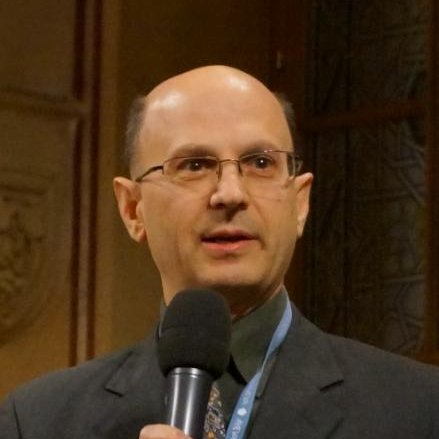
When I interviewed Steve Tongish, I found out that he had an engineering background. Despite that, or perhaps because of it, he ended up in the role of CMO for RealVNC. Tongish attributed his marketing success, at least in part, to his engineer’s mindset, which allows him to be very analytical about his work. Part of that approach is utilising the benefit automated marketing operations can bring to his role and team.
Tongish made his position on marketing automation and use of technology in marketing very clear. He said “This new technology is of such significance that it has really brought to the forefront a change in thinking. […] At the executive level this allows marketing to influence the agenda, because we have the analytics to strengthen our hand”.
Despite his clear view on marketing technology, Tongish also demonstrated that – as a CMO – you don’t have to be an expert in all areas of marketing technology. Sure, you have to embrace and understand the possibilities, but ultimately the success or demise of the marketing execution should not live or die by the CMO’s personal ability to operate all marketing technology solutions.
It’s ok to use humour in business
Ben Thompson, Co-Founder of Hoot

As marketers many of us struggle with the concept of using humour in our campaigns and communications. It’s a hard thing to get right, it’s even harder to excel at it. However, when I first met Ben Thompson in 2013 he told me about his business doing just that. It stuck in my mind and when I interviewed Ben I understood how he was able to make humour work for business.
When I asked Thompson about growing his own business, he said “We were […] geared up for the very specific skill of comedy. Nobody else offered that and we became ‘specialist technicians’.” This, in part, explains why he’s been successful, but also why others have failed. Thompson fully committed and had the appropriate skillset. Many marketing teams have failed to sustainably and effectively use humour, because of the lack of commitment and skills in this area.
Thompson shows that it’s ok to use humour in business. After all, he has built a successful business around it. But more importantly, I have learned that it can’t be an after-thought or flash-in-the-pan moment of madness. Comedy is business and not to be treated like a night out with friends. You need to be committed to sustainably build humour into your marketing and communications strategy, as well as your company’s overall identity.
Use your experience to craft a winning product
Paul Greaves, CEO of ZiMovi

When I interviewed Paul Greaves it was very clear that here was a man who had been (and continued to be) very successful. In Greaves’ case, he had a long career in sales leadership to look back on. Many sales people would have settled for that – and for good (and profitable) reasons. However, Greaves moved on to create something new on the back of that experience.
Greaves understood that the sales development seminars he had developed would soon be obsolete, if he didn’t move with the technological change. In-person seminars were soon replaced by video, and so Greaves first looked for, and then created, a sophisticated B2B video platform to facilitate what he wanted to achieve.
In speaking to Greaves and listening to his story, it became clear that it is possible to move on from a very profitable career path and create something new. Greaves had combined a requirement with the professional experience he had developed over many years and created a winning product. I learned that 40+ years is a long time to stay within one profession, so why not take Greaves lead – when the time is right – and develop something of your own, based on your own extensive experience.
Marketing needs to be ahead of sales
Jo Scarlett, CMO at PA Consulting

So often, in a high-performance marketing and sales organisation, we view one of the main achievements as alignment and integration between the two disciplines. So when the CMO of a global consulting firm appears to disagree with this, intend to listen up. Jo Scarlett did just that when she stated “I believe every marketing plan needs a line item focused on being just the right distance AHEAD of sales. Ahead enough to inspire and create markets … but not so far ahead as to lack credibility.”
She added a few important caveats: it has to be part of a plan, it has to inspire and create, and it should be credible. What this means in practice is different for each company. But executed well, this approach takes pressure off sales to sell a dream, because marketing already did it. It takes the pressure off the product team, because sales are not overselling. Instead, marketing has already provided the product development team with insight on what customers expect and what they would buy.
What Scarlett therefore points towards is a proactive marketing function, driven by insight, that works towards the goal of paving (and inspiring) the way for both customers and your sales team alike. Alignment between marketing and sales doesn’t have to be perfectly parallel, as long as the alignment is no asymmetrical. We may be used to the idea that – in the sales funnel – marketing activity comes before sales activity. But following Scarlett’s approach, marketing also comes before sales in terms of orientation and innovation.
Dream big and spot an opportunity in everything
Mylo Kaye, CEO of Dreamr
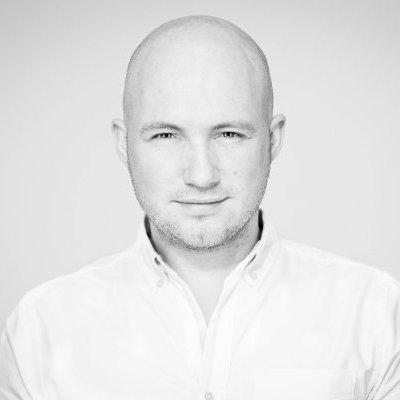
When I first interviewed Mylo Kaye, I had the expectation that I would be speaking to a typical agency founder the kind of which I had met many times before. I soon learned not to build preconceived ideas – and also to take more note of the company’s name and what it might say about the business and its founder. It seemed Kaye was throwing common wisdom to the wind, ignoring P&Ls and instead dreaming of boundless possibilities.
When I asked him about his inspiration, Kaye answered “What gets me and the team excited is doing things that we never thought possible. To be able to co-create something that changes lives, based on someone else’s dream. If we create one app that changes 1000s or potentially millions of lives, that fills me with great pride.” The passion and almost child-like excitement won me over and I began to understand how Kaye was viewing the world around him.
From Kaye, I learned to expect an opportunity in everything, but in order to do so you need to be able to (and allow yourself) to dream big. Many of us are uncomfortable with that, because it takes us out of our comnfort zone. And even Kaye admits his business partner has the more organised mindset to straighten out the lines. But we can all learn from Kaye’s “dream big and spot the opportunity” approach.
About INBND Growth Marketing:
INBND provides Growth Marketing Consultancy Services to B2B organisations.

Lev Cribb started INBND to address one big problem: the disconnect between lead generation and sustainable revenue growth. Or in other words, between marketing and sales. He saw too many companies grow inspite of their lead generation efforts, not because of them. INBND brings the passion, expertise and focus to drive change in your organisation. Get in touch today and find out how a modern approach to revenue generation can help accelerate your growth.
Contact Lev Cribb on 0330 001 5327 or follow him on Linkedin.


